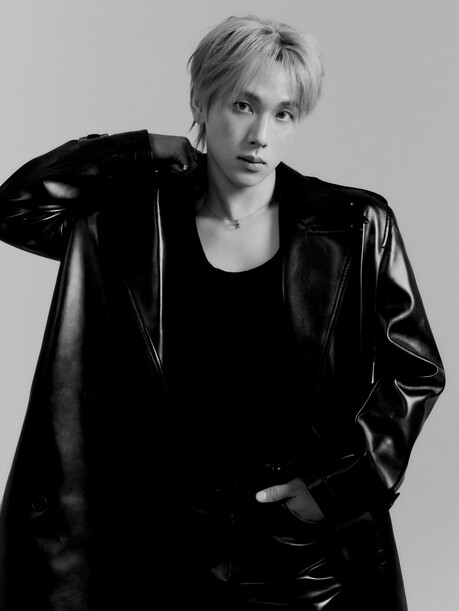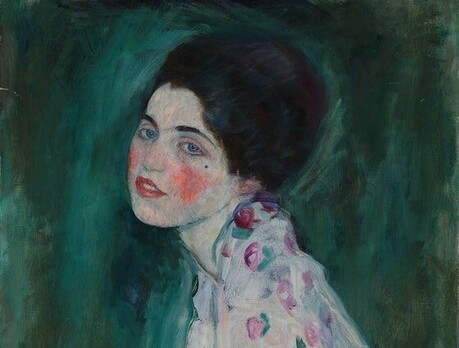Welsh musician Cate Le Bon didn't set out to make a grand statement with her seventh album 'Michelangelo Dying.' Instead, she found herself captivated by a single artistic image: Colette Lumiere's installation 'Recently Discovered Ruins of a Dream,' which features a woman alone in a room surrounded by fabric and mirrors that catch and reflect light. This sense of aftermath and the unique clarity that emerges after chaos has settled permeates every aspect of her latest work.
The album emerged from a period of personal turmoil for Le Bon, who had been primarily focused on producing music for other artists and hadn't fully processed a consuming breakup. When new music finally began to take shape, written in creative bursts across multiple cities including Cardiff, Hydra, London, and Los Angeles, she confronted themes of love and heartbreak with unprecedented honesty. What initially began as a more aggressive follow-up to her previous album 'Pompeii' was completely transformed when her long-term relationship ended, along with her dreams of a different life.
'Michelangelo Dying' represents what happens when emotional necessity forces its way into an artist's creative process, completely upending carefully laid plans. The resulting record explores what Le Bon describes as 'heartache railing against its own impermanence' - the cruel paradox of simultaneously yearning for healing while resisting it, caught between the desire to move forward and the temptation to hold onto the past. Each song captures her negotiating the unspoken terms of loss, with tracks that fold in on themselves like the fabrics in Lumiere's installation: soft, strange, and impossible to reduce to a single interpretation.
This album could be considered Le Bon's 'Disintegration' moment - a career-defining meditation on things falling apart, much like The Cure's Robert Smith picking through the remnants of romance. She excavates her own emotional layers, sifting through psychological strata to discover what remains. The album flows like water, abandoning traditional song structures in favor of shifts in color and texture that feel more like weather patterns than conventional pop forms.
The record possesses the gossamer quality found in the finest British introspective music, reminiscent of how Robert Wyatt made melancholy feel weightless on 'Rock Bottom,' or how Vini Reilly could make a guitar seem to dissolve into air. Production-wise, there are echoes of Roxy Music's velvet textures from their 'Avalon' era, but filtered through a more intimate and personal lens. David Bowie's 1980s guitar work is also present, not as a bold statement but as atmospheric backdrop - chords that linger in the air like smoke rather than cutting sharply through it.
The textures that Le Bon has been developing since her albums 'Reward' and 'Pompeii' finally reach full bloom here. Guitars and saxophones are warped into new and unexpected shapes, while vocals shimmer and dissipate like heat haze on a summer day. Traces of Kate Bush's theatrical bite, Nico's chilly poise, and Laurie Anderson's cybernetic warmth swirl together throughout the album, yet never overshadow Cate Le Bon's distinctive artistic touch.
Despite its abstract nature, Le Bon sounds remarkably direct on this record. As she told The Guardian, 'I was trying to communicate with myself,' and this internal dialogue is clearly audible throughout. On the track 'Is It Worth It (Happy Birthday)?,' she asks, 'Dig deep, are you dumb or devout?,' cutting to the heart of the line between faith and self-deception. On 'About Time,' when she sings 'I'm not lying in a bed you made,' then admits, 'It's the bed I've made, really, isn't it?,' listeners can hear her working through the complex logic of blame in real time.
The art-pop sensibilities of 'Michelangelo Dying' demonstrate wisdom in knowing when to hold back and exercise restraint. Le Bon's voice - cool and lightly processed - anchors the arrangement on 'Mothers of Riches,' while synthesizers hum quietly and drums tick steadily in the background. Following her breakup, illness crept into her life, and this physical and emotional ache haunts the song 'Body As a River,' which confronts the peculiar shame that women are often taught to feel for wanting autonomy and independence.
Throughout the album, Le Bon sings as if she's simultaneously confessing and consoling herself, with every note representing a small act of survival. The record unfolds at its own unhurried pace, which can initially feel almost vaporous or insubstantial. However, its rich textural layers reward patient listening, with each subsequent listen revealing new elements, like light shifting through water at different times of day.
This album marks a distinct departure from the absurdist energy that powered earlier works like 'Crab Day' or the more immediately accessible pleasures of 'Reward' - albums that could be spiky and playful even in their darker moments. While there's something to be said for missing that sharper edge and the way Le Bon once sliced through melancholy with wit and unexpected angles, this softer approach feels like necessary artistic territory for her to explore.
The supporting band operates like a carefully coordinated constellation of musicians. Euan Hinshelwood's saxophone swoops in precisely when words fail to adequately express emotion, while Paul Jones' piano and Dylan Hadley's percussion pulse gently in orbit around Le Bon's vocals. Valentina Magaletti's drums flicker throughout like Morse code, creating an intimacy forged over years of collaboration, with each player attuned to the same delicate frequency of restraint and release.
Le Bon's parallel career as a producer becomes increasingly relevant when considering this album. Her recent production work for artists including Dry Cleaning, Wilco, Horsegirl, Devendra Banhart, and St. Vincent's Grammy-winning album 'All Born Screaming' has established her as something of a modern-day Brian Eno. She possesses the same intuitive grasp of atmosphere and demonstrates a remarkable ability to guide artists toward discovering their most essential creative selves.
The album suggests that artistic significance is built through sustained vision rather than grand gestures or dramatic statements. John Cale's appearance on the track 'Ride' feels destined, with his restless spirit and fractured phrasing aligning perfectly with Le Bon's own magnetic ambiguity. He once described her singing as 'awkward in the best way' - a voice where every crack allows light to shine through and illuminate hidden emotional depths.
Ultimately, this album isn't concerned with providing sweeping catharsis or dramatic resolution, but rather with learning to inhabit and make peace with what remains after loss. By the final note of 'Michelangelo Dying,' Le Bon hasn't offered any neat conclusions or easy answers, but something more sustaining and ultimately more valuable: the slow, luminous work of carrying on and finding beauty in the process of healing.






























